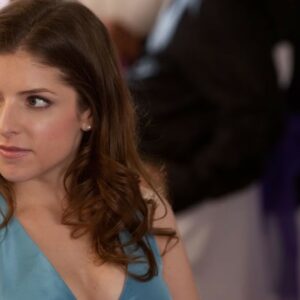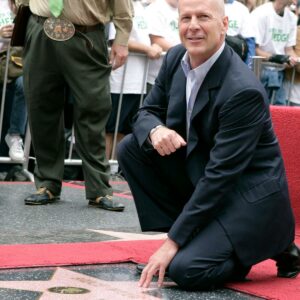Jennifer Lawrence, one of Hollywood’s brightest stars, has always been vocal about the issues that plague the film industry. From advocating for pay equality to challenging the systemic sexism that has long dominated the entertainment world, the Oscar-winning actress is no stranger to using her platform to promote positive change. However, one subject that resonates deeply with her is the importance of diversity in film. Lawrence’s passion for this issue goes beyond mere representation; she believes that diversity is essential for the overall quality and authenticity of storytelling in cinema. In a recent interview, Lawrence candidly discussed why she believes diversity is key to transforming the film industry, both in front of and behind the camera.
A Broader Perspective on Storytelling
To Jennifer Lawrence, diversity in film is not just about filling quotas or ticking off boxes. It’s about infusing cinema with a richness and depth that can only be achieved when different voices and perspectives are allowed to shine. She strongly believes that bringing in people from various backgrounds, ethnicities, and experiences enriches storytelling in profound ways.
“When we bring in voices from different backgrounds, ethnicities, and experiences, the stories become richer, more authentic,” Lawrence explained. “It’s not just about seeing people who look different; it’s about feeling stories that resonate on a deeper level because they’re coming from real places, real experiences.”
In her view, storytelling is a universal tool that connects people, and by restricting the diversity of stories told, we limit their potential impact. “We lose something valuable when we only see stories from one perspective,” she emphasized. “We miss out on the opportunity to learn, to grow, to understand the world in a fuller way.”
Lawrence’s advocacy stems from her desire to see more nuanced, multi-dimensional narratives in cinema. She believes that when filmmakers incorporate diverse perspectives, it leads to more authentic and relatable stories. This results in films that not only entertain but also educate and inspire audiences to view the world through a broader lens.
The Authenticity of Lived Experiences
One of the core arguments Lawrence makes for diversity in film is that stories based on authentic, lived experiences are far more compelling than those that are imagined or told secondhand. She believes that filmmakers who have personally experienced the struggles, joys, and complexities of life within their communities bring an undeniable authenticity to their work that resonates deeply with audiences.
“There’s something incredibly powerful about seeing a story that you know is rooted in real-life experiences,” Lawrence said. “When someone who has lived through a particular struggle tells that story, it’s more raw, more real, and it connects with people on a deeper level.”
For Lawrence, diversity in film is not just a matter of fairness or equality; it’s a matter of storytelling quality. Films that come from a place of truth are inherently more powerful, and that truth often comes from the unique perspectives of people who have been historically underrepresented in the film industry.
Opening Doors for the Next Generation
In addition to the impact that diverse storytelling can have on audiences, Lawrence is also deeply committed to the idea of paving the way for the next generation of filmmakers and actors. She understands that representation matters, and that when young people see someone who looks like them or shares their background succeeding in film, it opens up possibilities they may have never considered.
“When young people see someone who looks like them, someone who has a similar background or experience, succeeding in film, it inspires them,” Lawrence said. “It opens up their world to possibilities they might not have considered before. That’s why diversity is so important—it creates a ripple effect that empowers others to pursue their dreams.”
This ripple effect is something Lawrence is passionate about nurturing. She knows that by creating opportunities for underrepresented groups in film, the industry can inspire a new generation of storytellers who will continue to push boundaries and bring fresh perspectives to the screen.
But for Lawrence, it’s not just about what happens on screen. She stresses the importance of having diverse voices behind the camera as well. Whether it’s writers, directors, producers, or crew members, Lawrence believes that diversity should permeate all levels of filmmaking.
“We need more opportunities for people from underrepresented groups to tell their own stories, to be in control of their narratives,” she said. “That’s where real change happens. When you have diverse voices at every level of the filmmaking process, you’re not just seeing diversity on screen—you’re seeing it reflected in the stories themselves, in the way those stories are told.”
By advocating for diversity behind the scenes, Lawrence is calling for systemic change in the film industry. She knows that true representation cannot happen unless people from diverse backgrounds are given the opportunity to shape the narratives themselves.
Mentorship and Support
Another key aspect of Lawrence’s commitment to diversity in film is her dedication to mentorship and support. She believes that established actors and filmmakers have a responsibility to mentor the next generation and help them navigate the often-challenging path to success in the industry.
“I’ve been fortunate enough to have people who believed in me and gave me opportunities,” Lawrence said. “Now, it’s my turn to do the same for others. We all have a responsibility to lift each other up and create a more inclusive industry.”
Lawrence has actively sought out opportunities to mentor young actors and filmmakers, particularly those from underrepresented groups. She’s used her influence to advocate for more inclusive casting and hiring practices and has spoken out about the need for more mentorship programs in Hollywood.
A Call to Action for the Industry
While Lawrence acknowledges that progress has been made in recent years, she is also quick to point out that there is still a long way to go. She is not content with diversity being treated as a trend or a buzzword. Instead, she believes that it needs to become a fundamental part of how the film industry operates.
“We can’t just do this for a moment and then move on,” Lawrence urged. “This needs to be an ongoing effort to make sure that diversity is not just seen as an afterthought but as a key part of how we make films.”
For Lawrence, diversity should not be something that the industry feels obligated to address temporarily. Instead, it should be an ongoing, intentional effort to ensure that all voices are heard and that stories from all walks of life are given the platform they deserve.
She also believes that the industry needs to take a more proactive approach to creating opportunities for underrepresented groups. This means not just casting more diverse actors but also hiring more diverse filmmakers, producers, and crew members. It means supporting diverse filmmakers with the resources they need to tell their stories and ensuring that those stories are given the same level of attention and promotion as those from more established filmmakers.
Accountability and Progress
Lawrence’s call to action extends beyond just words. She believes that the film industry needs to hold itself accountable for its lack of diversity and take concrete steps to address the issue. This includes setting measurable goals for diversity and inclusion and regularly assessing progress to ensure that those goals are being met.
“We can’t just talk about diversity; we need to take action,” Lawrence said. “That means holding ourselves accountable, setting goals, and making sure we’re making real progress. It’s not enough to say we want to be more diverse—we need to actively work towards it.”
Lawrence’s approach to diversity in film is rooted in her belief that it’s not just about representation but about creating a more vibrant, dynamic industry that reflects the richness of the world we live in. She believes that by prioritizing diversity, the film industry can produce more innovative, engaging, and impactful stories that resonate with audiences around the world.
The Power of Storytelling
At the heart of Lawrence’s advocacy for diversity in film is her belief in the power of storytelling. She sees film as a medium that has the potential to change the world by influencing how people see themselves and others. And she knows that for film to truly have that power, it needs to represent the full spectrum of human experience.
“Storytelling is one of the most powerful tools we have,” Lawrence said. “It has the ability to change hearts and minds, to create empathy, to challenge the way we see the world. But for it to do that, it needs to be diverse. It needs to reflect the reality of our world, with all its complexity and diversity.”
Lawrence’s passion for storytelling is evident in the roles she chooses and the projects she supports. She has consistently sought out stories that challenge the status quo and that give a voice to those who are often overlooked. Whether it’s her portrayal of a struggling widow in Silver Linings Playbook or her role as a fearless revolutionary in The Hunger Games, Lawrence has always gravitated towards characters and stories that push boundaries and challenge societal norms.
For Lawrence, diversity in film is not just about fairness or equality; it’s about storytelling itself. She believes that the most powerful stories are those that come from a place of truth and authenticity, and that can only happen when diverse voices are given the opportunity to tell their own stories.
Challenging Stereotypes and Expanding Narratives
Another key aspect of Lawrence’s advocacy for diversity is her belief that diverse storytelling can help challenge stereotypes and expand the narratives that are traditionally portrayed in film. She knows that for too long, certain groups have been pigeonholed into specific roles or narratives, and she wants to see that change.
“When you only see certain groups portrayed in certain ways, it reinforces harmful stereotypes,” Lawrence said. “But when you bring in diverse voices, you start to see more nuanced, multi-dimensional portrayals that challenge those stereotypes and expand the narratives we tell.”
Lawrence’s commitment to diversity is not just about increasing representation but about changing the way that representation is portrayed. She wants to see more complex, fully realized characters from underrepresented groups, and she believes that can only happen when those groups are given the opportunity to tell their own stories.
Conclusion: A Vision for the Future
Jennifer Lawrence’s commitment to advocating for diversity in film is deeply rooted in her belief that it leads to better, more meaningful storytelling. By embracing the different voices and experiences that make up our world, the film industry has the power to create stories that resonate with audiences on a deeper level.
Lawrence knows that diversity is not just a trend or a buzzword—it’s a fundamental part of creating a more vibrant, dynamic, and inclusive film industry. And as she continues to use her influence to push for change, she serves as a powerful reminder that diversity in film isn’t just about representation—it’s about creating stories that matter.





